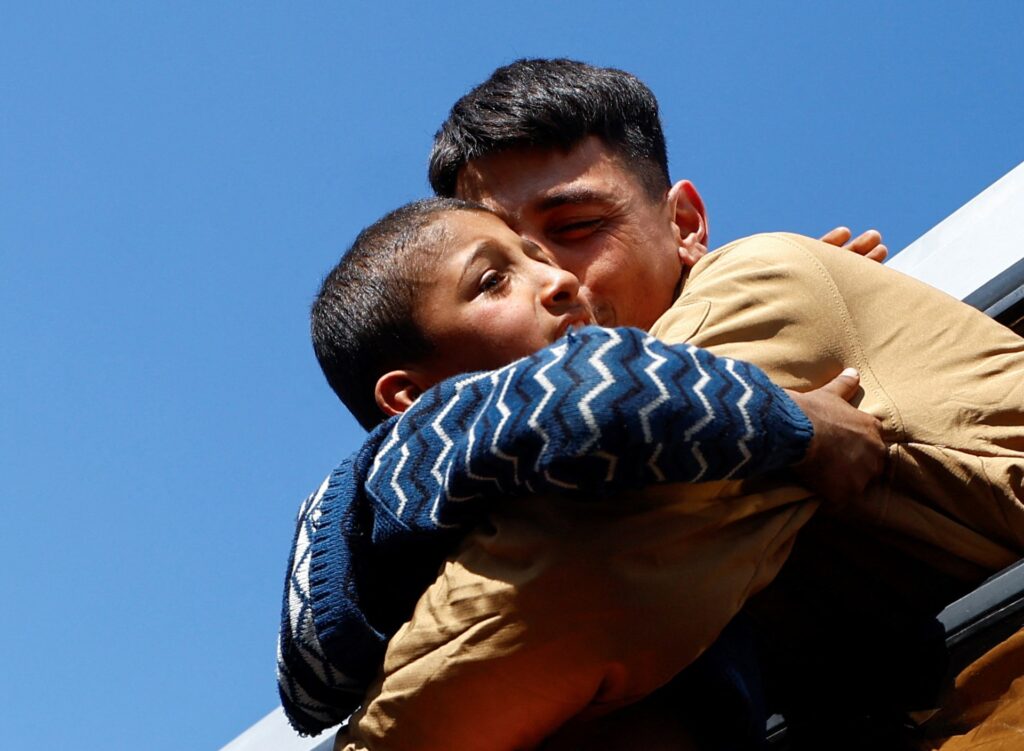For Palestinians held within Israel’s prison network, torture, abuse and contempt for life isn’t just the norm, it’s the system.
That’s according to report released this week (PDF) by the NGO Physicians for Human Rights-Israel (PHRI).
Recommended Stories
list of 4 itemsend of list
In the report, PHRI reveals the details of at least 94 Palestinian prisoners killed while in Israeli detention. The true number is likely far higher, the report’s authors concede. All of those killed died from either torture, assault, wilful medical neglect or malnutrition.
The report builds upon a tranche of evidence of abuse and torture published by a variety of human rights organisations, both inside Israel and internationally.
“It’s not just (far-right National Security Minister Itamar) Ben-Gvir’s policy, it’s an Israeli policy directed against Palestinians in Israeli custody, in military and civilian deterioration facilities alike,” one of the report’s authors, Oneg Ben Dror, told Al Jazeera.
Included in the testimonials (PDF) is the case of 33-year-old Abd al-Rahman Mar’i from the occupied West Bank, whose body – a latticework of bruises, contusions and fractures – was returned to his family after he died in Megiddo prison in November 2023.
Another prisoner, 17-year-old Walid Khaled Abdullah Ahmad from Nablus, was returned to his family with his body having next to no muscle or fat remaining, despite his family saying that he had been an athlete before his arrest in September 2024. A post-mortem revealed that Walid died six months after his arrest, with post-mortem findings indicating he had suffered “severe and prolonged malnutrition”.
Yet another detainee, 25-year-old Arafat Hamdan from the occupied West Bank village of Beit Sira, only lasted two days in military custody before he died. A type 1 diabetic, Arafat needed regular insulin injections to stay alive. Witnesses to Arafat’s death report him being brutally beaten and his medication withheld.
Systems of hatred
Testimonies, official records, and extensive evidence collected by PHRI and other organisations indicate that, alongside Israel’s genocidal war on Gaza, there has been an unparalleled campaign of assault against detained Palestinians.
Israel is thought to have arrested more than 18,500 Palestinians since the war on Gaza began in October 2023. Many of those have fallen victim to the kind of routine abuse documented by rights groups such as Human Rights Watch (HRW), the Israel-based B’Tselem, and the Palestinian Centre for Human Rights (PCHR).
In addition to the thousands whose detention has been documented, there are an unknown number taken as part of an Israeli policy of enforced disappearances in the first few months of the war, legalised through Israel’s Unlawful Combatants Law.
Two years on, many of those disappeared may no longer be alive. “Thousands of Palestinians from Gaza are unaccounted for; of those, hundreds were reported to have been taken by the Israeli military. The concern is that many of them are no longer alive,” Ben Dror said.
Accusations that Israel has been torturing its prisoners, including United Nations staff, have run almost the length of the war. In August 2024, B’Tselem issued its report on the Israeli prison system titled “Welcome to Hell”, detailing the physical, psychological and sexual abuse meted out to Palestinians taken into Israeli custody.
Both PHRI and HRW have also previously investigated the specific torture of healthcare workers by the Israeli military in stark contravention of international law. Among other instances of the brutal treatment were threats to cut prisoners’ hands off because “they were dentists” and forcing doctors to bray like donkeys.

System of denial
“Sde Teiman is the only case that has reached the Israeli public, but we are aware of many more,” Ben Dror said of the gang rape of a Palestinian man in the Sde Teiman military prison in July 2024 whose prosecution, if not perpetration, has divided Israeli society.
“Sde Teiman was only reported because the injuries were so extensive that the victim had to be admitted to a public hospital, where a large number of people became aware of the case,” she continued.
None of the other reports of rape and sexual abuse carried out against Palestinian prisoners – such as the suspected, and ultimately fatal, rape of Dr Adnan al-Bursh in Ofer prison in March 2024 – have gained much attention within Israel.
Instead, politicians such as Ben-Gvir, who has responsibility for Israel’s prison system, are confident enough to actively boast of ensuring that prisoners’ food is reduced to the “minimum of the minimum”, despite a July report from the Palestinian rights group Addameer documenting what researchers termed the drastic and deliberate reduction in quantities of food and water allowed to prisoners.
“Haaretz tends to cover these things, but that’s about it,” Israeli political analyst Nimrod Flaschenberg said, referring to the popular liberal Israeli news outlet. “But if I look at the coverage given to this latest (PHRI) report, there’s nothing. Maybe a few individual leftist websites have picked it up, but that’s it.”
“People just don’t know. I’m not saying if they did know there’d be any great moral outcry, but there’d be something,” he continued. “For now, statements like those from Ben-Gvir on prison conditions are popular. He wouldn’t say them if they weren’t.”

Nevertheless, despite the overwhelming evidence of abuse within Israel’s prison network, in late October, Israeli Defence Minister Israel Katz renewed the ban on allowing international agencies, such as the International Committee of the Red Cross (ICRC), to inspect its prisons.
“Horrific reports on the treatment of Palestinians in detention have been met with inaction and ignored, with Israel blocking ICRC access and independent oversight,” Milena Ansari from HRW said. “This isn’t about isolated abuses, but a broader pattern carried out with impunity. Without accountability, the violence will only deepen, and more deaths in Israeli detention will continue to emerge.”


